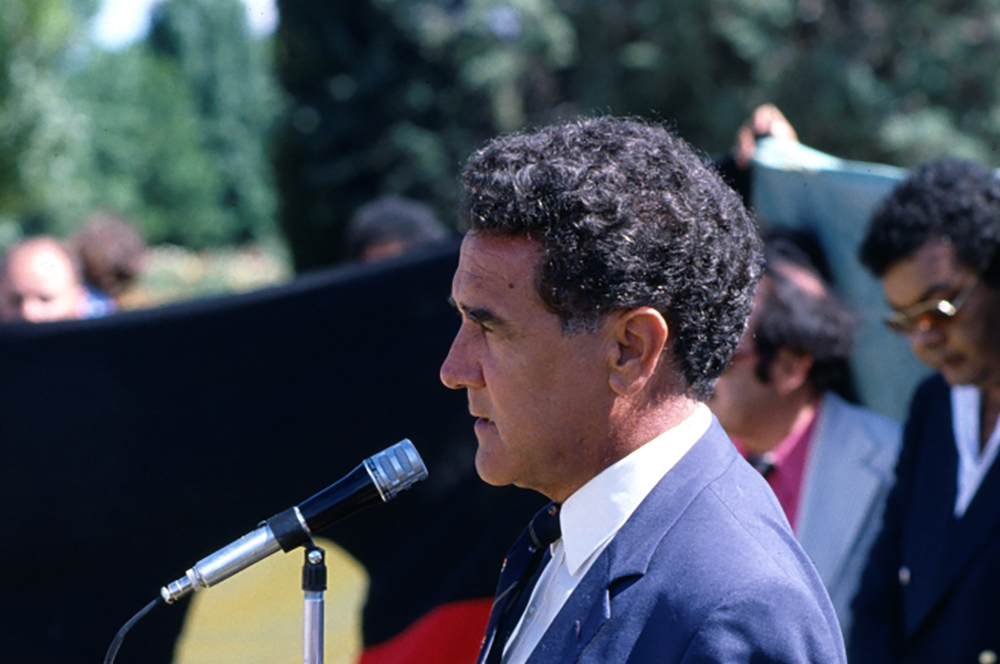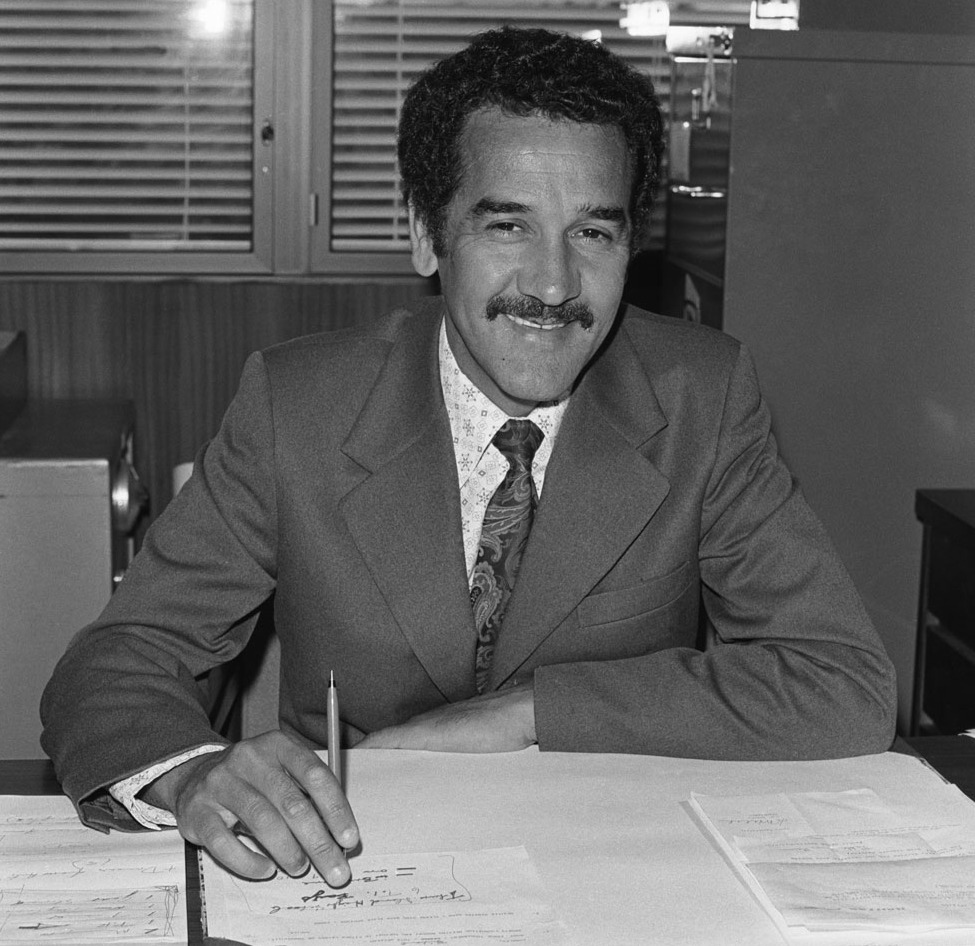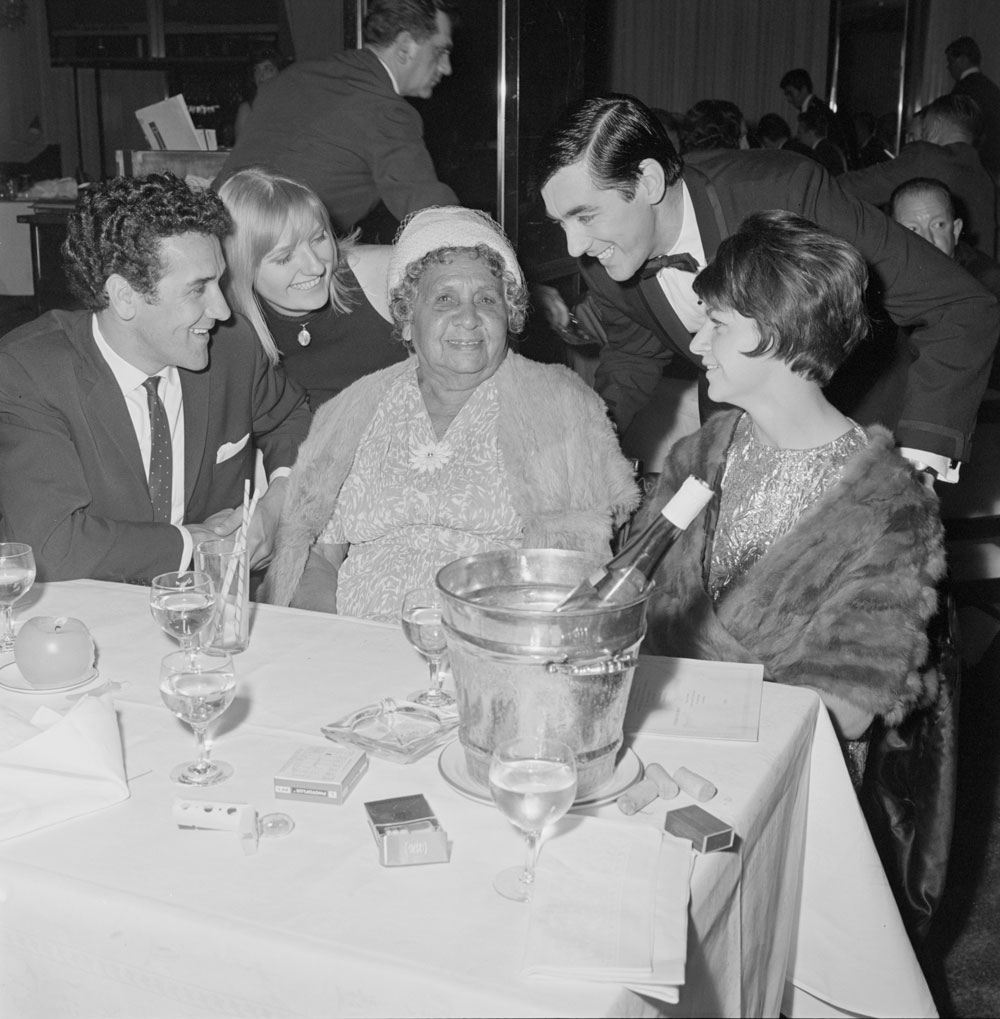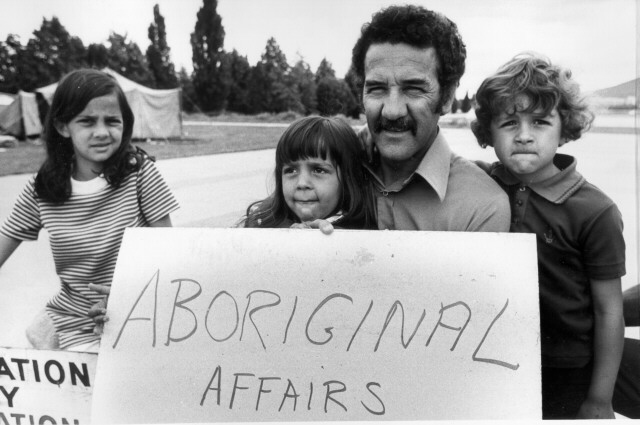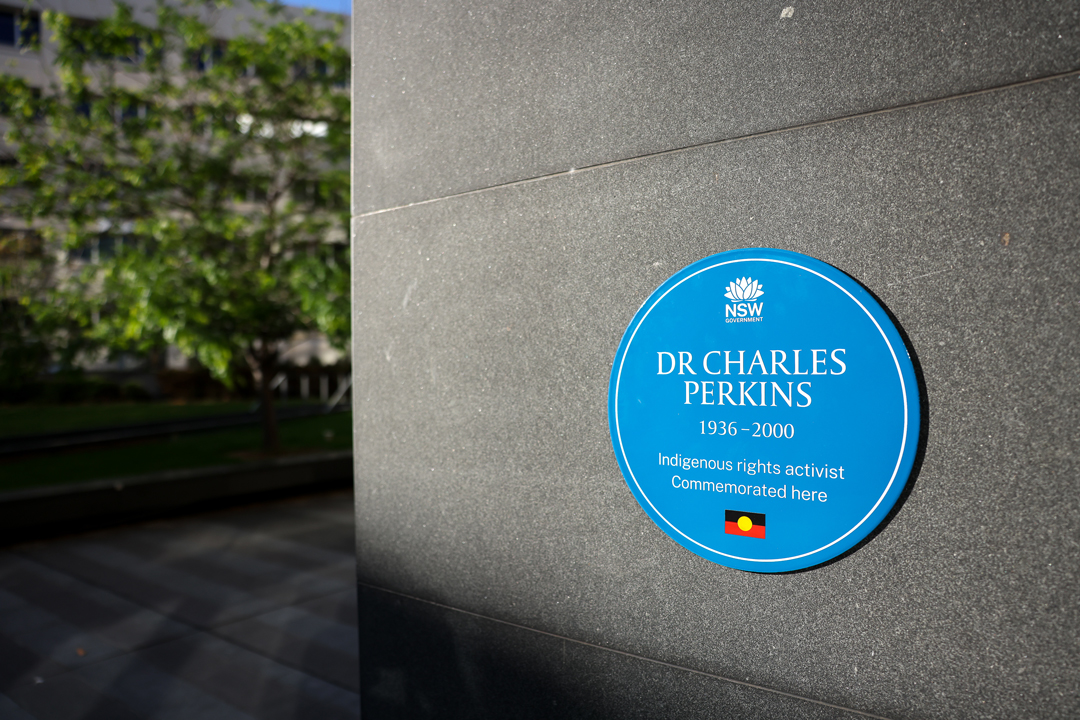Location
Charles Perkins Centre, John Hopkins Drive, University of Sydney, Camperdown NSW 2050
Camperdown is on the lands of the Gadigal people.
Accessibility
Wheelchair accessible
About Dr Charles Perkins
Studying at the University of Sydney from 1963 to 1966, Dr Charles Perkins AO become the first Indigenous man to graduate from an Australian university.
Dr Perkins dedicated his life to the cause of civil rights for Aboriginal and Torres Strait Islander communities. His professional career was a lifelong journey devoted to drawing attention to discrimination and injustice, and improving the welfare of his people.
Today, his legacy at the university lives on in the Dr Charles Perkins Memorial Oration and Prize, which was named in his honour, and in the University of Sydney’s Charles Perkins Centre.
Charles Perkins's early life
Dr Charles Perkins was born in 1936 at the Alice Springs Telegraph Station in the Northern Territory. His mother was an Arrernte woman and his father a Kalkadoon man.
At the age of 10, Charles was sent to St Francis House in Adelaide, a school for Aboriginal boys. Although Charles initially trained as a fitter and turner, his outstanding soccer skills saw him travel to the United Kingdom in 1957. Despite trialling for first division club Everton and being invited to trial for Manchester United, he decided to return to Australia in 1960.
Higher education and activism
The following year, Charles began attending the University of Sydney, where he was soon elected president of the university's newly formed Student Action for Aborigines group, a collection of students of different backgrounds who shared a common passion for civil rights. He was one of only 2 Aboriginal students at the university at the time.
In February 1965, 29 students, including Charles and fellow Aboriginal student Gary Williams, embarked on a 15-day bus tour of regional New South Wales, known as the Freedom Ride. It exposed discrimination against Aboriginal people, who were segregated from white peers or barred from using halls, swimming pools, picture theatres and hotels in many towns. The trip is still remembered as one of Australia's most significant civil rights events.
Later that year, Charles made the news again when he staged the fake 'kidnapping' of 5-year-old Nancy Prasad to highlight the injustice of her deportation under Australia's White Australia Policy.
Charles helped establish the Foundation for Aboriginal Affairs in Sydney in 1965. He later joined the organisation full-time after graduating with a Bachelor of Arts – the first Aboriginal man to graduate from an Australian university.
Public service continues
Moving to Canberra to work in the Office of Aboriginal Affairs, Charles was rising through the ranks of the public service by the late 1970s. Initially appointed chairman of the new Aboriginal Development Commission, he then became Secretary of the Department of Aboriginal Affairs in 1984.
Charles was made an Officer of the Order of Australia (AO) in 1987 for his service to Aboriginal welfare. In addition to receiving an honorary Doctor of Laws from the University of Sydney, Western Sydney University awarded him an honorary Doctor of Letters.
A lasting legacy
In later life, Charles played key roles on the boards of Aboriginal arts, sports and media organisations. He also served on the Aboriginal and Torres Straits Islander Commission and the Arrernte Council of Central Australia Aboriginal Corporation.
Charles's multifaceted contribution to Australia is recognised in the University of Sydney's Charles Perkins Centre, where his legacy of innovative thinking for public good continues.
References
University of Sydney (n.d.) Who is Charles Perkins?, USyd website, accessed 20 June 2025.
